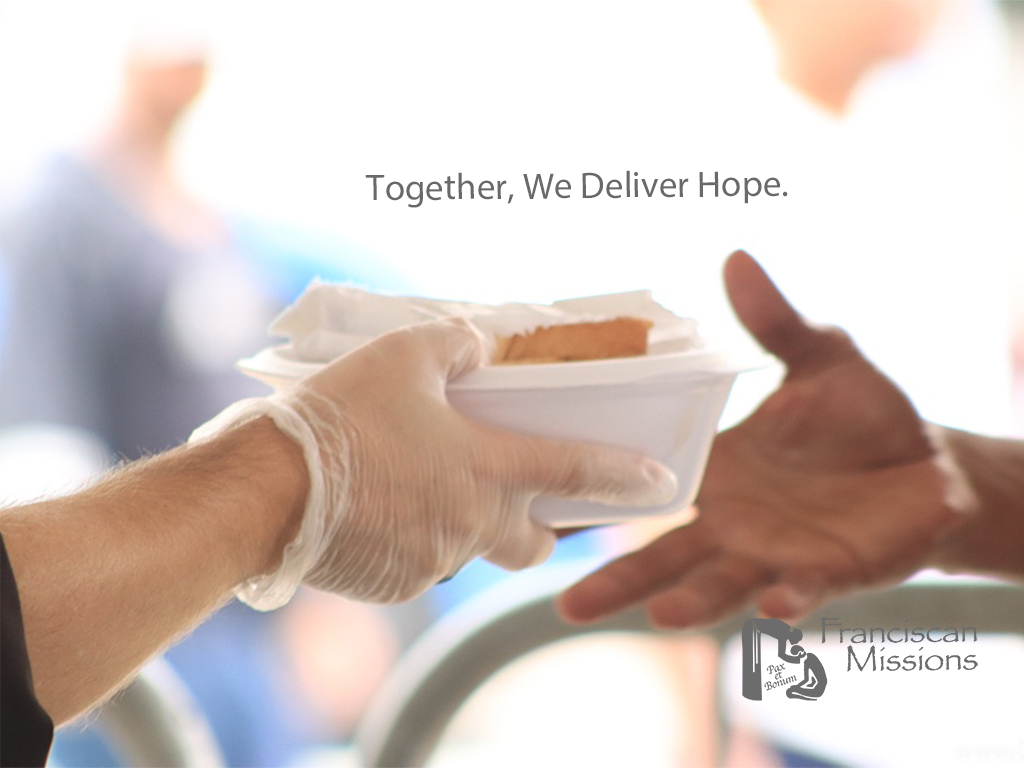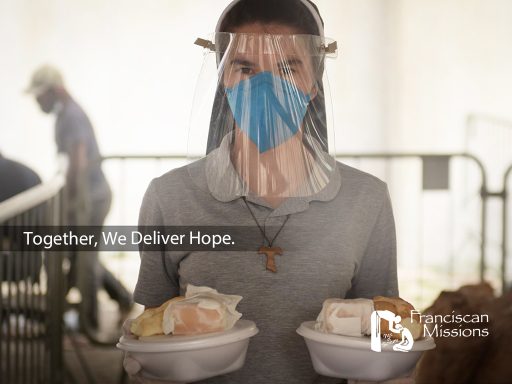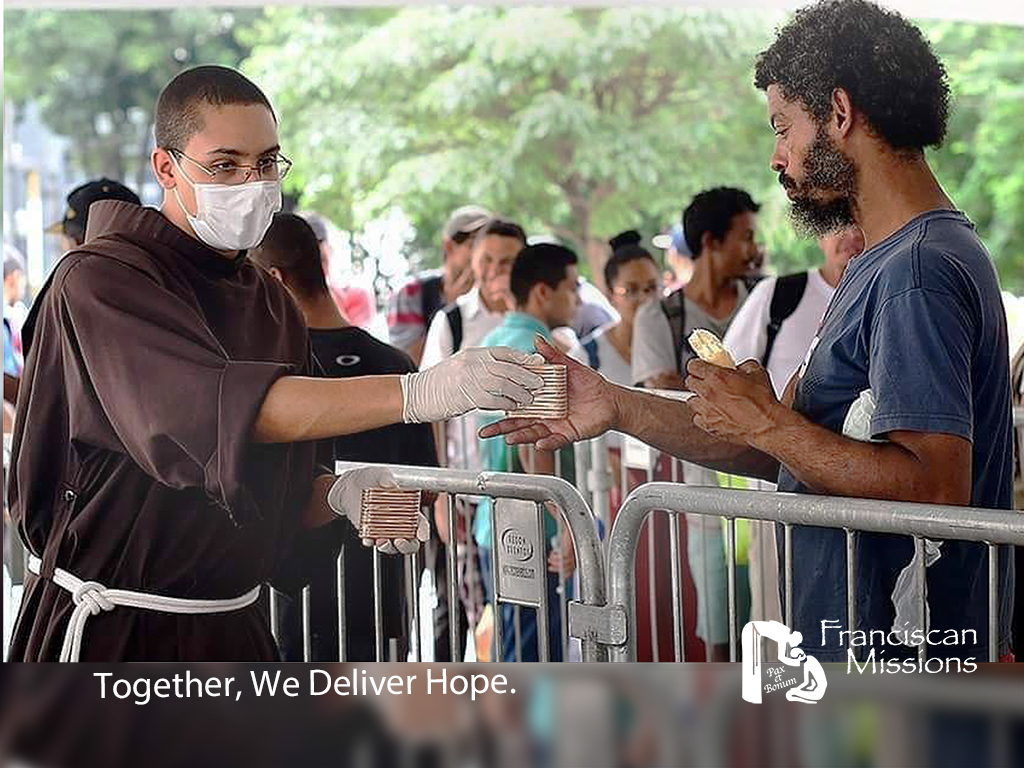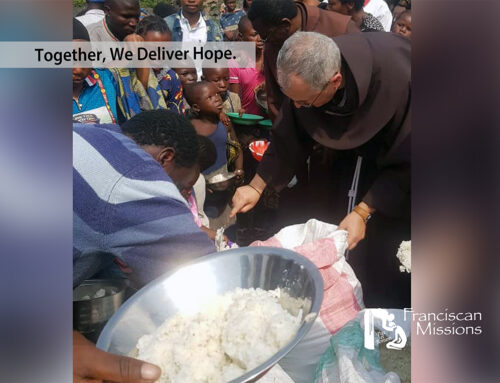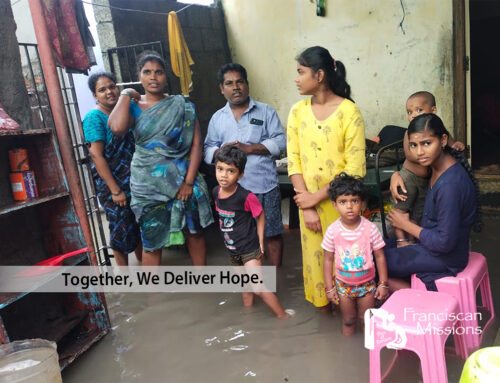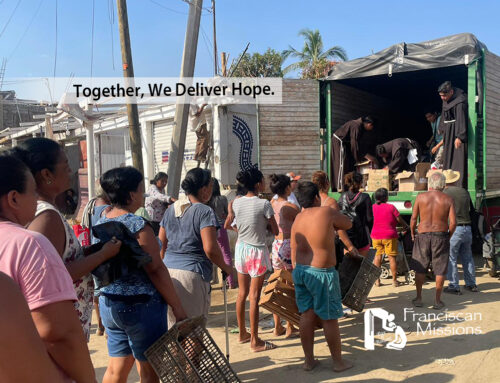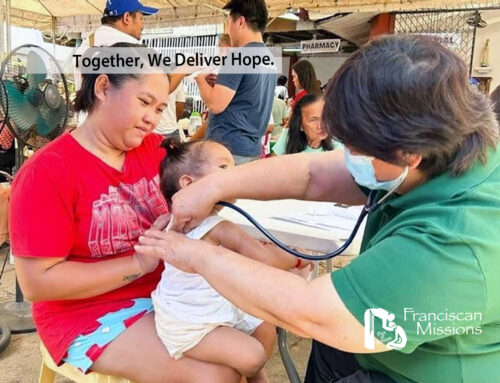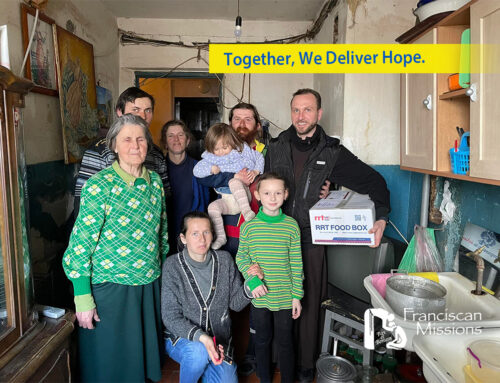Since the pandemic outbreak, in March 2020, Brazil has suffered enormous pandemic-related tragedies with over 32 million COVID cases.¹ Brazil is second in the world to the United States, with over 670,000 deaths and climbing. A staggering 116 million Brazilians (Approximately 54 percent of the country’s population) suffer from food insecurity and other socioeconomic effects of the pandemic.²
In 2020 Franciscan Missions awarded a financial grant to several Franciscan provinces in Brazil. A portion of the support was used to establish community kitchens. These kitchens, located in poor areas, are staffed by local volunteers who prepare food and distribute meals to the poor. The food was obtained through the local support of poor family farming cooperatives. The farmers are financially supported to produce and deliver locally grown greens, vegetables, fruits and eggs. This strategy of economic support is helping over 100 poor family farms in rural areas continue during this crisis. It ensures quality food for the vulnerable population through the community kitchens.
Community kitchens are a symbol of resistance in these difficult times. They are also symbol of hope because they sow other values of solidarity and care. They fulfill a social function in the absence of public policies aimed at food and nutritional security. The delivery of food by itself does not solve all the problems that needy communities face.
The unity and collaboration of people brought about by the community kitchens can lead to the development of other strategies to address socioeconomic needs in Brazil.
- Content from Worldometers.info
- The New Humanitarian, Article: “Pandemic puts Brazil back on the world hunger map” (19 July, 2021)

